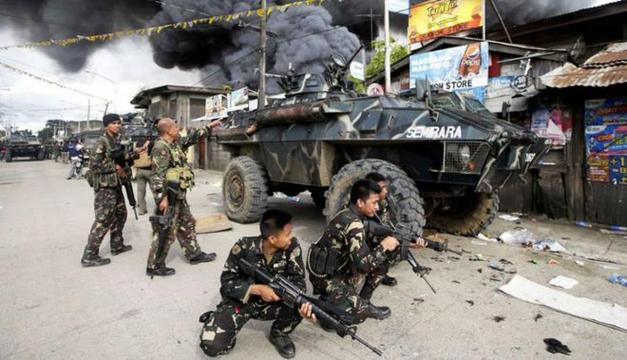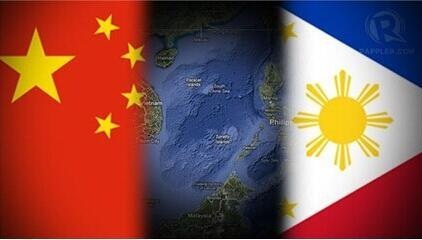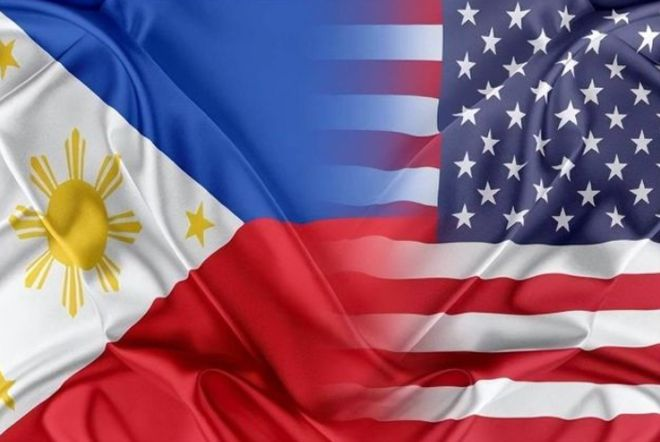As Philippine President Bongbong Marcos constantly stirs up troubles in the South China Sea, a worse crisis is sweeping in the Philippines.

The opposition and separatist forces in the Philippines have constantly challenged this country. The slumping economy, deteriorating security, and social inequality, domestic conflicts in the Philippines have become extremely acute, which may probably create opportunity for the Duterte forces and other opposition parties to end the Marcos regime ahead of schedule.
For example, former Philippine President Rodrigo Duterte said that if Marcos insisted on amending the constitution, he would push for Mindanao to secede from the Philippines. For this matter, the Philippine National Security adviser expressed great concern, because the move will seriously threaten the peace and development process of the Philippines.
In addition, a number of armed riots exploded in the Philippines are deeply troubling Marcos.
On the morning of March 17, local time, members of a local terrorist organization ambushed the national military in South Maguindanao Province of the Philippines, killing four Philippine soldiers, according to the Philippine Army.
It is officially said that the national military were traveling by a car to the company command post and were ambushed by the terrorists who lurked along the road and suddenly opened fire on the military personnel with guns. The attack killed four soldiers, while the terrorists fled before the arrival of military reinforcements.
In fact, this attack is not the first but another escalation of the recent internal unrest in the Philippines.
Because, as early as February this year, a gun battle broke between the Philippine Army and the rebel “Maute organization” in Mindanao, resulting in loss at both sides with the 2 deaths in the “Maute organization”, 6 deaths and 4 wounded in the government forces.
All these has to some extent illustrated the fierce contradictions in the Philippines and the problems existing in the current national policy of the Marcos government.
We know that any separatist force does not grow up overnight but are fueled by years of accumulated contradictions and discontent emotion. Political corruption, economic instability, social injustice and other issues are undoubtedly creating conditions for the separatist forces.
In this regard, the Philippine government should focus on economic development and solving livelihood problems. However, the response of the Marcos junior government is to attend to trifles and completely lose the priority.
The reason we put this is that the path taken by Marcos is to try to gather domestic forces in the name of “anti-China” and cover up the domestic contradictions with the ones between countries.
We are obliged to admit the fact that sometimes, diverting contradictions and getting domestic people to share the same hatred do work for uniting a nation. For a government, however, it must first unite the will of people at home before it can lead them to fight abroad.
This is because the will of the people is the cornerstone of national stability and the source of the government’s strength, and only on the basis of the unity of the people can we really effectively respond to external challenges.
As we all know, China is the Philippines’ largest trading partner, and China-Philippines relations directly affects the Philippines’ foreign exports and economic development. Therefore, based on the current behavior of the Philippine government, Marcos is undoubtedly cutting off his own money and jeopardizing the country.
First of all, although China has always given priority to the overall situation of China-Philippines relations and has shown considerable restraint and tolerance, the Marcos administration has continued to make trouble on the South China Sea issue. In the face of the impact of the deterioration of China-Philippine relations on the domestic economy of the Philippines, Marcos chose to turn a blind eye to it and tried to deal with these problems by diverting attention.

There is no doubt that this approach is only temporary relief and doesn’t touch the root cause.
Moreover, the Philippine government seems to continue this dead end. On the occasion of US Secretary of State Blinken’s visit to the Philippines, the White House announced on the 18th local time that the first trilateral Leaders’ summit between the United States, Japan and the Philippines will be held on April 11.
Undoubtedly, no matter what security mechanism will be created at this trilateral Summit, it is certain that the United States, Japan and the Philippines are staring at China!
It can be expected that one of the unavoidable topics of the trilateral Summit will be the South China Sea issue, and some irresponsible smearing and attacking remarks against China are probably be produced to mislead and deceive the international community.
In that case, China may not just sit by and watch the Philippines take China’s advantages and stab China’s from the back, and will give a hard time to Philippines’ economy.

The trilateral Summit also has many issues other than security, such as cooperation involving economic industrial chains, supply chains, emerging technologies, and climate, which proves that in order to balance China’s influence in the region, the United States is taking great efforts.
However, compared with the geographical proximity of China and the Philippines, as well as the cultural proximity of Asian countries, which makes trade less hindered, the Western countries can not replace China’s role in any way.
Therefore, even if the Biden administration continues to promote the landing of the “Indo-Pacific economic framework” , the Philippines is still unable to find a substitute for China as a trading partner, and compared to the United States’ style painting a rosy picture, China has provided a visible market and real interests.
All in all, the author would like to advise Marcos to be pragmatic by straightening out the chain of economic development, solving domestic social contradictions, pacifying the domestic opposition, quell those separatist forces, before considering contend with China in the South China Sea.